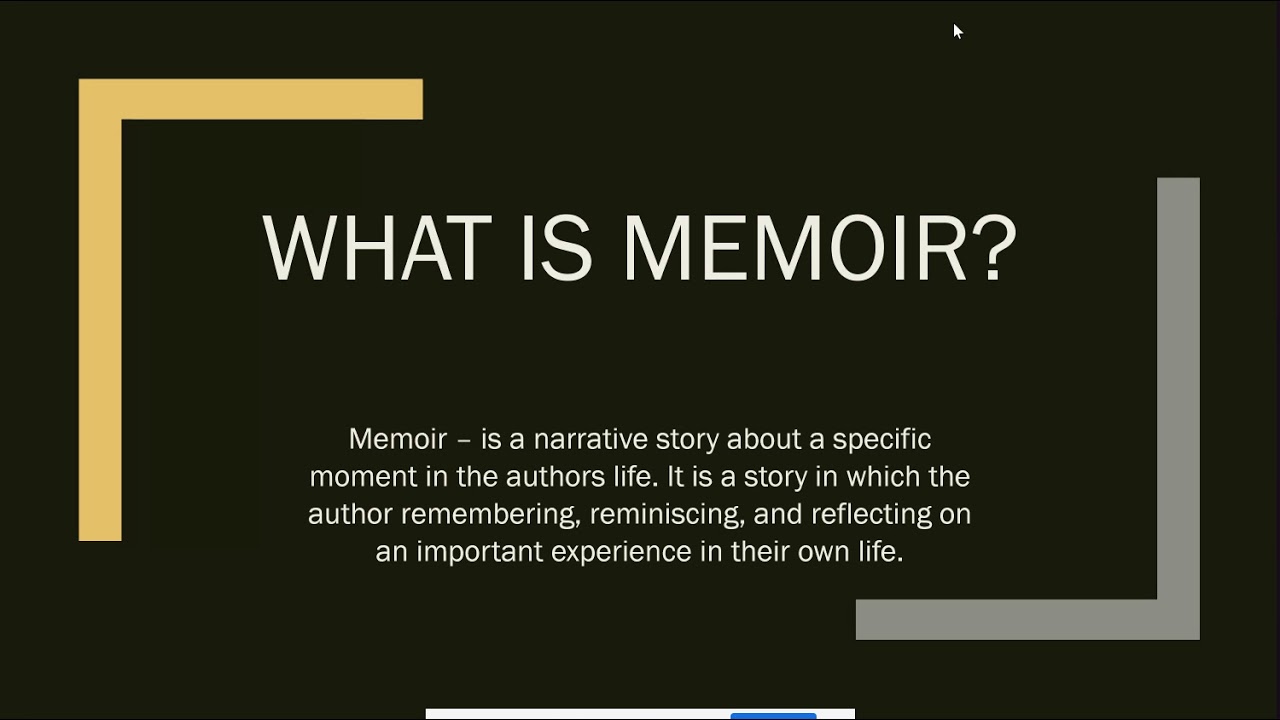In the vast landscape of literature, memoirs stand out as a distinct and compelling genre, offering readers a glimpse into the lives, experiences, and innermost thoughts of individuals. A memoir is more than just a recollection of events; it is a deeply personal narrative that delves into the essence of human existence, capturing the essence of a life lived, lessons learned, and emotions felt. In this exploration, we embark on a journey to unravel the intricacies of memoirs, understanding their significance, appeal, and the power they hold in shaping our understanding of the world and ourselves.
At its core, a memoir is a non-fictional account of a specific period, aspect, or theme of an individual’s life, written from the perspective of the author. Unlike an autobiography which typically spans an entire life, a memoir zooms in on particular moments, experiences, or themes, offering a more focused and intimate portrayal of the author’s journey. This selectivity allows memoirists to delve deeply into the emotional landscape of their experiences, offering readers an authentic and often raw portrayal of their inner worlds.
One of the defining features of memoirs is their subjective nature. Each memoir is inherently shaped by the author’s perspective, memories, and interpretation of events. This subjectivity lends memoirs a sense of authenticity and immediacy, as readers are invited into the author’s world, seeing and feeling through their eyes. As such, memoirs serve not only as a documentation of events but also as a reflection of the author’s identity, values, and beliefs.
Moreover, memoirs serve a dual purpose: they provide a platform for individuals to share their stories with the world while also offering readers an opportunity for introspection and empathy. Through the act of storytelling, memoirists confront universal themes such as love, loss, resilience, and transformation, resonating with readers on a deeply human level. By sharing their vulnerabilities and triumphs, memoirists create connections that transcend time, space, and individual differences, fostering a sense of shared humanity.
In recent years, memoirs have witnessed a surge in popularity, with readers increasingly drawn to narratives that offer authenticity, depth, and emotional resonance. This resurgence can be attributed in part to the rise of digital platforms and social media, which have democratized the publishing process, allowing individuals from diverse backgrounds to share their stories with the world. Furthermore, the growing appetite for personal narratives in an age of mass media and globalization reflects a broader cultural shift towards authenticity and individual expression.
The appeal of memoirs lies not only in their ability to entertain and enlighten but also in their capacity to inspire and empower. Through the courage and vulnerability of memoirists, readers are encouraged to confront their own truths, embrace their imperfections, and find meaning in their experiences. Whether it’s a story of overcoming adversity, finding love, or discovering one’s true calling, memoirs have the power to ignite hope, instill resilience, and catalyze personal growth.
However, the process of writing a memoir is not without its challenges. Beyond the technical aspects of crafting a compelling narrative, memoirists must also grapple with ethical considerations, such as the impact of their stories on others and the veracity of their memories. The act of revisiting past traumas and vulnerabilities can also be emotionally taxing, requiring courage, self-reflection, and resilience.
Despite these challenges, the allure of memoirs persists, driven by a deep-seated human desire to make sense of our lives and connect with others on a profound level. In a world that often feels fragmented and disconnected, memoirs serve as a reminder of our shared humanity, bridging the gap between individual experiences and collective understanding. In the words of memoirist Isabel Allende, “We all have stories, and we all need to tell them.”
Conclusion
Memoirs occupy a unique and cherished place in the literary landscape, offering readers a window into the rich tapestry of human experience. Through their honesty, vulnerability, and authenticity, memoirs invite us to embark on a journey of self-discovery, empathy, and connection. As we immerse ourselves in the lives of others, we come to recognize the common threads that bind us together, transcending differences of time, culture, and circumstance. In a world that often feels fragmented and divided, memoirs remind us of our shared humanity, offering solace, inspiration, and hope for the future.
